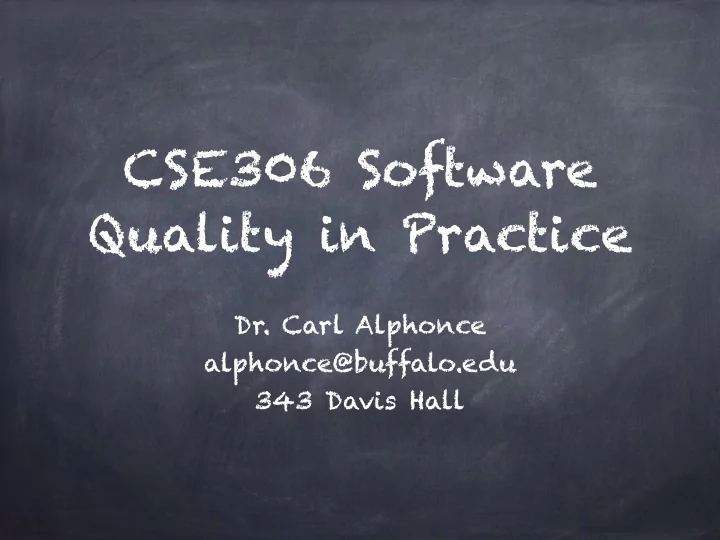

CSE306 Software Quality in Practice Dr. Carl Alphonce alphonce@buffalo.edu 343 Davis Hall
LEX13 file size Data files should not have been included - I forgot that file00 was quite large. I believe you all submitted via private post in Piazza - we'll sort it out on our end.
Grading We WILL have LEX01 - LEX06 graded by Monday.
gcov/gprof vs Valgrind instrumentation vs simulation gcov and gprof - instrumentation approach - instrumentation: code is added to the executable to gather runtime data - executable runs as usual on hardware Valgrind - simulation approach - no code is added to the executable (though more human-readable output is produced by compiling with -g flag) - executable runs in a simulated environment
Valgrind "val-grinned" - the gate to Valhalla A suite of tools (see http:/ /valgrind.org/info/tools.html) Memcheck "detects memory-management problems" Cachegrind "is a cache profiler" Callgrind "is an extension to Cachegrind. It provides all the information that Cachegrind does, plus extra information about callgraphs." Massif "is a heap profiler" Helgrind "is a thread debugger which finds data races in multithreaded programs" DRD "is a tool for detecting errors in multithreaded C and C++ programs"
callgrind valgrind --tool=callgrind [opts] prog [opts] [opts] callgrind options [opts] program options
callgrind_annotate Helps to make sense of callgrind data. callgrind_annotate --inclusive=yes -- tree=both --auto=yes callgrind.out.<PID> https:/ /web.stanford.edu/class/cs107 /guide/ callgrind.html
Recommend
More recommend